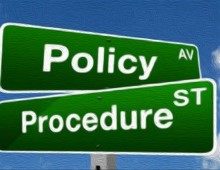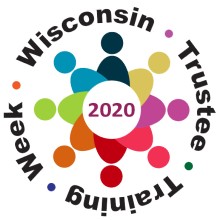New Electronic Newsletter Format Implemented

Since Fall of 2007, the South Central Library System (SCLS) has published the Trustee Update newsletter that has been mailed to all library trustees. This issue of the newsletter marks the move to a new online format.
The newsletter will live on these new web pages, and we’ll send email announcements of new issues to library trustees and directors.
“Library trustees are vital to the success of public libraries,” said Martha Van Pelt, SCLS director. “This transition away from a print newsletter will save on printing and postage costs while still allowing us to provide timely information to trustees and directors.”
The plan is to continue publishing three newsletters per year, but the electronic format allows us to easily share other timely articles if the need arises. If you don’t receive email notices about new issues, that means we don’t have your email address on file. To be added to the email distribution list send an email to Mark Ibach and ask to be added to the Trustee Update email list.
Board Bylaws Should Support Chain of Command
The relationship and interaction between a library board and the library director and other library staff is clearly spelled out in s. 43.58(4); “...the library board shall supervise the administration of the public library and shall appoint a librarian, who shall appoint such other assistants and employees as the library board deems necessary,and prescribe their duties and compensation.”

Simply stated, the board hires and supervises the library director, and the library director hires and supervises library staff. Trustee Essentials Chapter 7 further explains this relationship and division of authority, and states: “While both the library board and the library director have significant personnel responsibilities, the library will operate most effectively if the two parties cooperate and communicate on important personnel matters, while avoiding intrusion into each other’s area of responsibility.” Keep in mind that:
- The library director has the authority to hire staff to fill positions authorized by the library board and to supervise those staff, but should keep the library board informed of important personnel issues and consult with the board, if possible, before making significant personnel decisions.
- The library board’s unsolicited intrusion into the director’s responsibility to select and supervise staff can undermine the authority of the director and create discord and disorganization in library operations.
These two bulleted items are important and point to the need to have both clear library policies and board bylaws to ensure things run smoothly. The library’s employee handbook or staff policies should clearly articulate the process staff should follow when issues arise and need resolution. Employees should always be directed to bring issues or complaints to an immediate supervisor for resolution, but if that fails it should be elevated to the director. In smaller libraries, such issues or complaints should be raised with the director. This should be the process even when an issue or complaint involves the director.
Chapter 7 states, “Trustees should direct staff members who have complaints about the director, policies, or materials to discuss the situation with their supervisor or director. If that does not resolve the issue, the staff should be encouraged to follow the library’s grievance or complaint procedure provided in the library’s personnel policy. Only in extreme situations should staff complaints go directly to the board.” The library staff policy should also make it clear that staff should never leapfrog the director and library board and go directly to municipal or county officials.
The chapter further states that except in “unusual circumstances,” communication between the library board and library staff about library business should be carried on through the library director. “Going behind the directors back undermines the trust necessary for effective and orderly operation of the library.”This language emphasizes the importance of having board bylaws that provide clear guidance to trustees when such situations arise. It is not unusual for trustees to be approached by library employees, but employees should always be instructed to follow the library’s policies for resolving issues or complaints.
More information about developing board bylaws can be found in Chapter 3 of Trustee Essentials, while Chapter 10 addresses development of library policies. The general link to Trustee Essentials is https://dpi.wi.gov/pld/boards-directors/trustee-essentials-handbook.

Trustee Training Week Videos Available
Recordings of Trustee Training Week 2020 webinars are available at www.wistrusteetraining.com. The archives go back to 2015.
These webinar recordings are great resources for trustees who were unable to attend the August webinars, or who just want to watch again.
Also available to library trustees is Short Takes for Trustees, a series of 10 short videos (8-10 minutes each) that can be shown during trustee meetings to stimulate discussion about the important role trustees plan in the governance of their libraries.
Save the Date for Legislative Day 2021
T

he COVID-19 pandemic has disrupted everything, but right now the Wisconsin Library Association (WLA) is moving ahead with plans for Library Legislative Day on Tuesday, Feb. 16, 2021, at the Concourse Hotel, One West Dayton St., Madison.
This is always an excellent opportunity to build relationships with state legislators and share with them stories and information about the important role your library plays in the community you serve.
Be sure to watch the WLA website for more information and updates about the day.